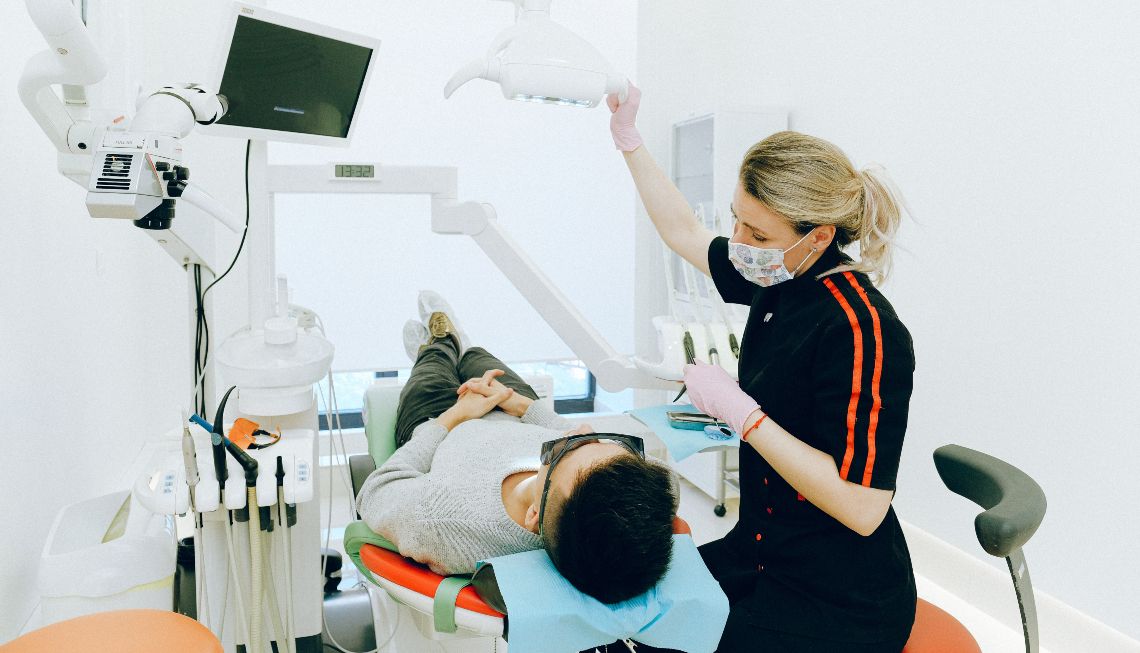PARTNER
How automation can boost the patient experience
By UiPath
Javed Ali, Industry Practice Director Healthcare at UiPath, shares how robotics can make an impact throughout a hospital’s services.

Robotics automation is helping hospitals to coordinate and improve care in every step of the patient’s treatment. It can make appointment scheduling and registrations faster, intelligently support doctors for diagnosis and even help admin staff to simplify payment.
Javed Ali, Industry Practice Director Healthcare at UiPath, highlights five key areas where intelligent automation can make a difference. He shares examples of how automation is speeding up care and making the work of hospital staff easier.
1. Onboarding Doctors and Nurses
A hospital ceases to function without the staff that keep it afloat. The start of the patient journey is the hiring of doctors and nurses who provide the care, says Ali. Automation can help with the unique challenges of human resource management in healthcare, he shares.
The nature of the medical business means hiring qualified professionals is key, he explained. Automation can help in accessing different data sources to check through certificates and resumes, validating the required clinical competence and professional efficiency needed.
Automation can also flag sanctions and other notable parts of a medical professional's history, he says. The software robot acts as a recruitment assistant to hospitals so they “can easily onboard” new staff members into their network about 40 per cent faster.
2. Patient arrival
A hospital visit should never be longer than it absolutely has to be. Automation can help to cut gruelling wait times.
UiPath Healthcare Digital Assistants can help nurses identify patients as soon as they arrive by checking their date of birth, insurance details and past due payments. This requires pulling information from multiple systems, says Ali.
Bots can also bring up the patient’s medical history. An AI assistant would collate this data, giving clinicians a simple breakdown of their previous diagnosis or procedures. Doctors would have this information on hand even before patients walk through their doors.
These Digital Assistants can then make initial recommendations for treatments and identify the types of medicine needed.
While human staff still have the ultimate decision making power, AI makes the process easier by kickstarting it upon patient arrival. UiPath bots have allowed nurses to onboard patients and validate their medical history and insurance details up to 35 per cent faster.
3. Diagnosis & Treatment
The increasing medical history data generated from different hospital information systems hold great value to patient care and research. AI based intelligent robots are key to obtaining the wealth of information and knowledge underlying medical data.
For instance, AI and machine learning algorithms can analyse these data records to assess the probability of patient readmissions, says Ali. Algorithms are also being developed to study chest x-rays and predict whether patients are suffering from pneumonia, he adds.
Automation even allows for faster identification of high-risk pregnancies. Amitech, a healthcare insurance provider in the USA, highlighted automation as the key to speeding up care delivery for pregnancies that need extra attention.
Amitech added automation to data analytics, and was able to shorten the time from patient arrival to finding the correct care plan to just under five weeks, said Jeff Hatfield, Vice President of Client Solutions at Amitech.
4. Data processing
Patient appointment scheduling, vitals management, discharge management and auditing medical procedures are the part of day to day data processing activities at every hospital. These play a vital role to assure care quality.
Doctors and nurses perform an average of more than 500 clicks a day. Automation excels in doing this sort of repetitive work. Norwegian health service Helse Vest, for instance, used robots to help patients and staff with pre-pregnancy data collection.
Bots extracted information from files that previously could only be manually processed. They also removed outdated data. The technology means nurses no longer face tasks that are time consuming and of low value, said Line Fjeldstad, a midwife at Helse Vest.
Automation has been even more crucial during the Covid-19 pandemic. Hospitals faced a staff crunch, coupled with the need for quick testing and diagnosis to rein in the spread of the virus.
The Mater Hospital in Dublin used UiPath robots to automate admin tasks, so nurses could focus on infection control measures. This helped nurses gain back 30 per cent of their time.
5. Payment
Healthcare systems don’t typically talk to one another very well. This means there’s often poor data integrity and ineffective data management, which makes claims and billing difficult.
In the claims process, automation aids in validating patient information and payment data, Ali explains. Before a claim is sent to the insurance company, the software robot highlights “missing information” so that the patient's claim won’t be denied, he adds.
Max Healthcare, North India's largest hospital network, found that “there was a huge volume of emails from insurance providers” and that “the entire activity was manual”, said Yogesh Kumar Gupta, Senior VP Accounts & Finance.
“People would miss data entry in many cases,” he shared. But “RPA came to our rescue” and was able to process emails from insurance companies, “saving time and boosting accuracy”, Gupta explained.
Automation has been shown to speed up doctors’ response and shorten patients’ wait times at the hospital, whether it is verifying data or recommending appropriate care. While no one wants to visit a hospital, automation can make the experience just a little easier.